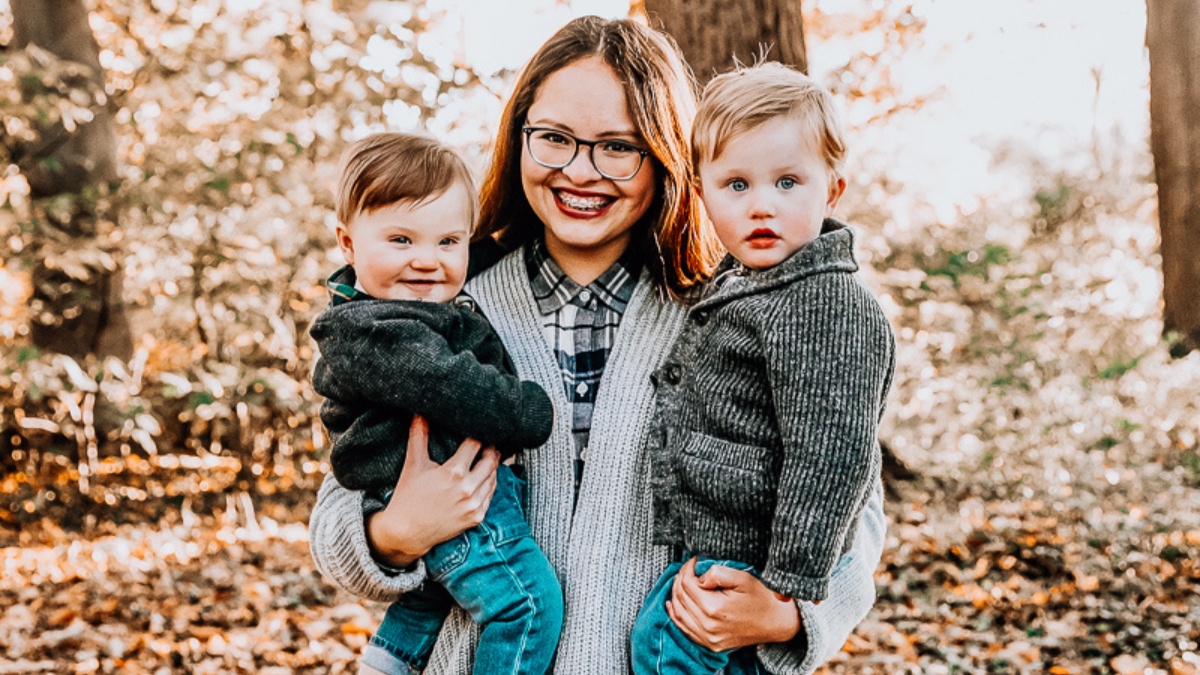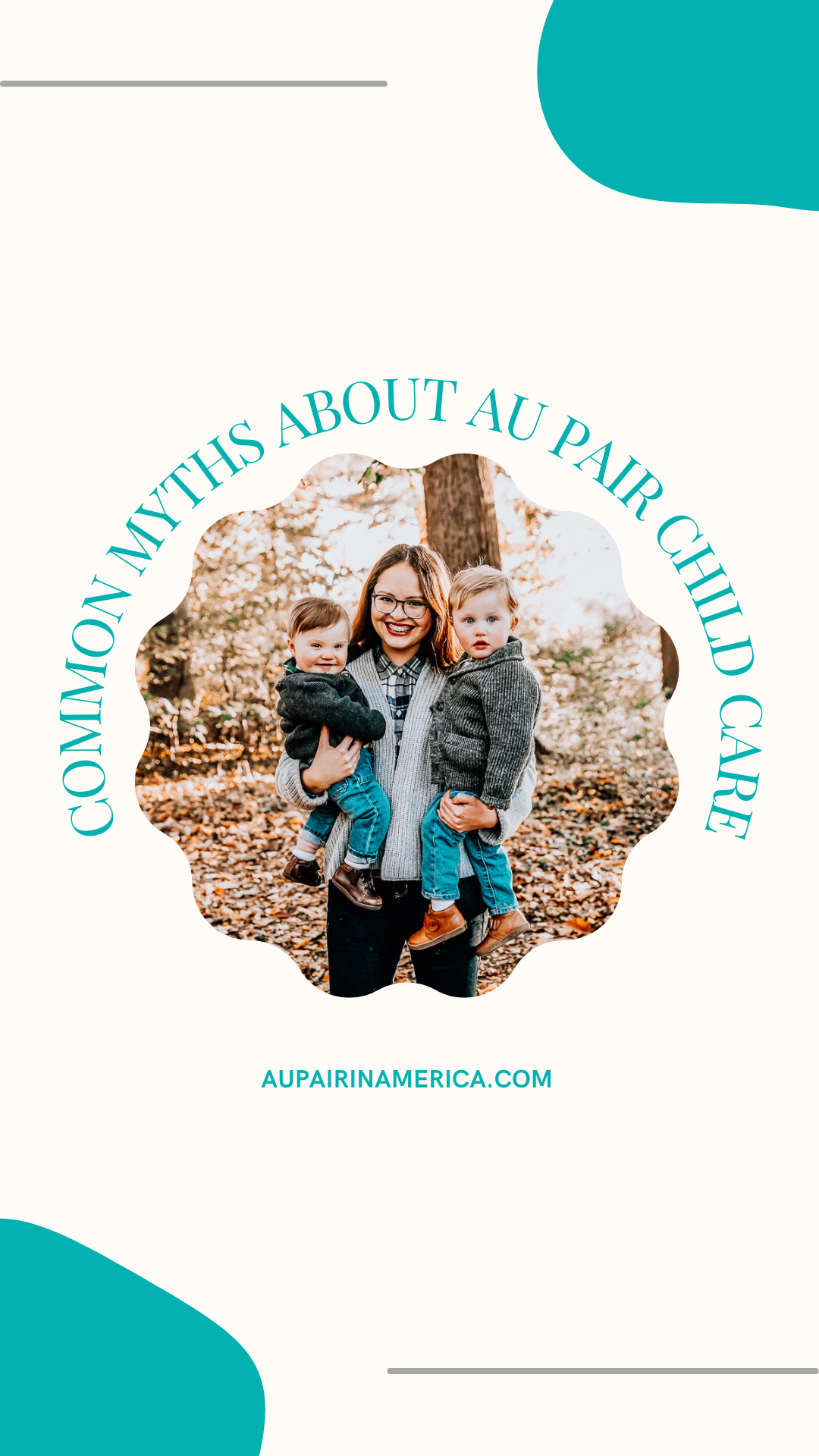There are many au pair myths and stereotypes circulating that may leave parents confused about what hosting an au pair is really like. With over 30 years of experience, Au Pair in America can help demystify the au pair program for families interested in live-in flexible child care options.
Here are 10 common au pair myths — and the facts:
Myth #1: Au pairs are only for wealthy families
FALSE. Our host families come from diverse economic backgrounds. Many families find that hosting an au pair can help their family save on child care costs. In particular, families with more than one child often find that they can reduce their child care costs by hosting an au pair. Unlike many other child care options, the fee for hosting an au pair is per family, not per child.
Myth #2: You need a large house to host an au pair
FALSE. Host families can live in any sized house, apartment or condo, so long as there is an appropriate private room available for the au pair. Au pairs cannot share a bedroom with children or other family members, but a private bathroom for the au pair is not required.
Myth #3: Au pairs are the same as nannies
FALSE. While au pairs and nannies share some similarities, there are distinct differences between a nanny and and an au pair. The au pair program is fundamentally a cultural exchange experience meant to enrich both the au pair and the host family.
In the United States, the au pair program is regulated by the Department of State. Au pairs are young people between the ages of 18 and 26 who travel to the United States on a J-1 Visitor Exchange Visa to acquire a better understanding and appreciation of American life while living with an American family and caring for their young children. Au pairs (French for “on par” or “equal”) are more than employees and become part of the family, sharing a cultural exchange experience that often leads to a lasting relationship with the host family.

Myth #4: You don’t need to work with an agency
FALSE. In the United States, the Department of State requires au pairs to have sponsorship from a designated agency like Au Pair in America in order to receive a J-1 visa. In 1986, Au Pair in America was the first agency to be approved by the Department of State to sponsor J-1 visas for au pairs.
Myth #5: You will lose your privacy if you host an au pair
FALSE. It’s understandable to feel nervous about welcoming someone new into your home. Host families should consider what areas of the home the au pair may have full access to and areas that she may not. During the interview process, families should discuss with the au pair areas in the home that are considered private spaces, as well as any online privacy concerns. In turn, host families should respect the privacy of the au pair and her right to a private room. Communication is key – host families should talk to their au pair about which family activities she is welcome to join and establish times that members of the family enjoy their own space.
Myth #6: Once an au pair arrives, host families will be on their own
FALSE. Au Pair in America makes sure host families and au pairs are supported every step of the way, including after an au pair’s arrival. In addition to assisting host families with selecting an au pair, coordinating logistics of her arrival and providing orientation and training, Au Pair in America also provides year-round local support, medical insurance for au pairs and 24/7 emergency assistance.
Our host families receive the services of a personalized support team. With a large network of community counselors throughout the United States, Au Pair in America host families have local support throughout the exchange year. Host families are contacted by one of our experienced community counselors within 48 hours of the au pair’s arrival. The community counselor conducts an evaluation within the first two weeks of the au pair’s arrival and maintains monthly contact with host families and au pairs.
Myth #7: Au pairs can do housekeeping too
FALSE. This au pair myth is mostly false — au pairs are unequivocally not housekeepers. However, au pairs can be expected to clean up after themselves and complete household duties directly related to their host family’s children. For example, an au pair’s responsibilities can include preparing meals for the children, straightening up playrooms and doing the children’s laundry. Au pairs cannot be expected to clean the entire house or regularly cook for host parents.
Myth #8: Au pairs won’t be able to drive in the U.S.
FALSE. An au pair’s responsibilities can include driving host children to and from appointments and activities as needed. Au Pair in America requires every au pair to hold a valid driver’s license in their home country and requests that they obtain an International Driving Permit (IDP) before leaving for the United States. We strongly recommend that au pairs obtain a local state driver’s license as soon as possible.
Additionally, we offer our au pairs resources to prepare for driving in the United States. Au pairs must complete training in safe driving, including information on American road signs, tips for driving in the winter and wet weather and preventing distracted driving.
Myth #9: Anyone can be an au pair
FALSE. The au pair program is highly regulated by the Department of State. Au pairs must be young people between the ages of 18 and 26 who have at least 200 hours of recent child care experience, speak English to an acceptable standard and have earned a secondary school diploma or equivalent. Additionally, au pairs must pass thorough screening, including a background check.
Myth #10: Au pairs can’t work weekends
FALSE. One of the greatest benefits of au pair child care is its flexibility. Host families and au pairs work together to set a customized child care schedule. Au pairs can work up to 45 hours per week, including weekends. However, it is required to give au pairs one full weekend off per month and one and a half days off per week. This gives au pairs the opportunity to travel and experience as much of American culture as possible!
Have you heard of other au pair myths? Let Au Pair in America provide you with the facts. Contact us with any questions you may have about hosting an au pair!

2 comments
Very good information. I thought you would change as limit to 50. There are very energetic women of this age who can take very good care of your kids since they are mature and have a great experience with children.
Hi Ada! Thank you for your comment. The 18-26 age requirement is set by the U.S. Department of State, not individual a u pair organizations. Have a great day!